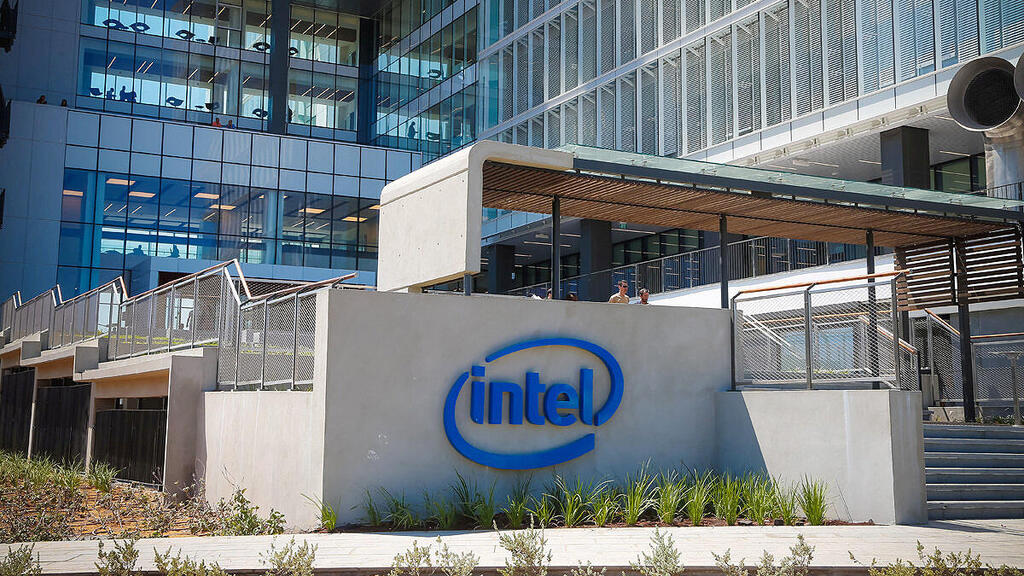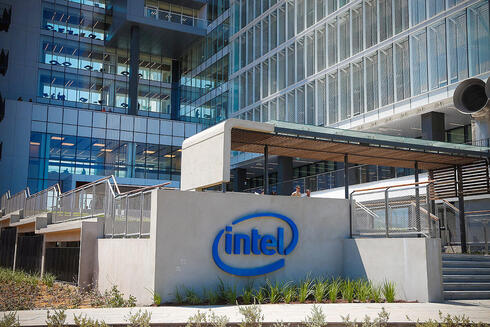
Inside Intel's painful cuts: Who's being let go and why
Which roles are affected, how automation and restructuring are driving layoffs, and why Israel still has a significant part to play in Intel's future.
Intel Israel has been forced to embark on a significant and painful round of layoffs, affecting several hundred employees across all of the company’s activities. Calcalist is revealing the full scope of the cuts here for the first time. While it is difficult to estimate the exact number of layoffs at this stage, since the company does not provide official figures, estimates suggest they will total in the hundreds.
Fab38 freeze: Intel’s big manufacturing bet collides with harsh market reality
Intel offloads $900 million in Mobileye shares to ease cash crunch
Intel offers up to 19 salaries to laid-off employees if they don’t fight firings
Sources who spoke to Calcalist estimated that layoffs at Intel’s Kiryat Gat plant alone could reach up to 200 people. According to managers working in the cleanroom in Kiryat Gat, the layoffs will occur in two main groups.
The first group includes middle-level managers. These cuts stem from Intel’s decision to flatten the organization and reduce management layers to enable closer contact between employees and managers and speed up decision-making. Some of those affected are group leaders, direct managers of production workers responsible for supervising shifts. Others are first-line managers. Overall, this affects a limited number of middle and junior managers, not production workers or engineers themselves, but the first and second levels of management above them.
The second group affected consists of technicians working in what is known as the ROC (Remote Operations Center), according to employees at the ROC who spoke to Calcalist. These operations staff remotely control, monitor, and manage production processes. ROC technicians do not physically work on the production line, they don’t wear cleanroom suits but instead work around the clock from a control room, operating computer systems connected to all the tools and stations in the fab. Using these tools, they run machines, approve processes, track statistics, and detect faults in real time. This role requires managing the complexity of hundreds of production processes simultaneously, minimizing downtime, and responding rapidly to problems. The work is done in shifts, 24/7.
ROC workers and other employees at the plant told Calcalist that the cutbacks in the ROC stem from Intel’s global plan to implement new automation systems. According to them, these systems, rolled out gradually, will automate tasks currently performed manually by ROC technicians and managers. As automation is introduced, the need for human labor in this department will shrink, ultimately rendering most roles redundant. Workers said they were told this reflects a broader business logic that will be implemented at other Intel chip plants worldwide, not just in Israel. This process will not happen overnight: according to estimates, the transition will continue through the end of 2025, with layoffs happening in parallel with technological progress.
Related articles:
Calcalist has learned that the current wave of layoffs will not be limited to the Kiryat Gat plant but will extend across Intel Israel’s development centers and production sites, mirroring cuts announced at other Intel sites worldwide. For example, reports already show that Intel is laying off 54 employees in Folsom, 217 in Santa Clara, and 194 in Ireland.
Despite the layoffs at the Kiryat Gat site, which has so far avoided cuts, Intel still considers the plant strategically important. This is clear from Intel’s latest annual report to investors, published under the leadership of CEO Lip-Bu Tan, which has not yet been reported in the Israeli media. The report identifies the Kiryat Gat fab as one of Intel’s main manufacturing sites, producing chips with Intel 7 technology and contributing significantly to company revenue.
The report shows that the value of Intel’s property, plants, and equipment in Israel stood at $10.4 billion at the end of 2024, up about 12% from $9.29 billion in 2023. This makes Israel one of Intel’s key locations, with almost 10% of the company’s total physical assets worldwide, which totaled $107.9 billion last year. By comparison, Intel’s physical assets in the United States were valued at $72.1 billion, in Ireland $18.1 billion, and in all other countries combined, including production and R&D sites across Asia, Europe, and Latin America, just $7.3 billion. This puts Israel third worldwide in terms of Intel’s physical assets, after the U.S. and Ireland, underscoring Intel’s growing investment in the country.
Israel is not only an important center for Intel but also a strategic operational anchor, particularly for production lines related to Intel 7 technology, which the report describes as still the company’s most significant manufacturing technology in terms of production volume and revenue.
Another source who spoke with Calcalist said that Lip-Bu Tan places a high value on Israel’s workforce and that the current layoffs are part of a global restructuring, not a move specific to Intel Israel. According to this source, Intel’s development centers, especially those focused on designing processors for computing, cores for client devices and servers (in Haifa), and significant production activities, remain vital to Intel’s core business.
The company noted in response that it can not address estimates provided by anonymous sources and said: "As we announced earlier this year, we are taking steps to become a leaner, faster and more efficient company. Removing organizational complexity and empowering our engineers will enable us to better serve the needs of our customers and strengthen our execution. We are making these decisions based on careful consideration of what’s needed to position our business for the future, and we will treat people with care and respect as we complete this important work."
